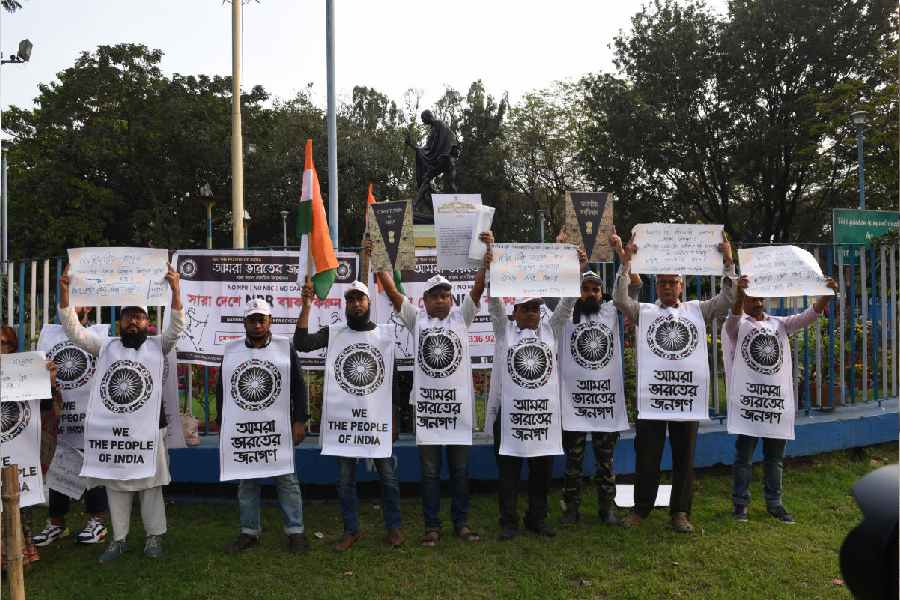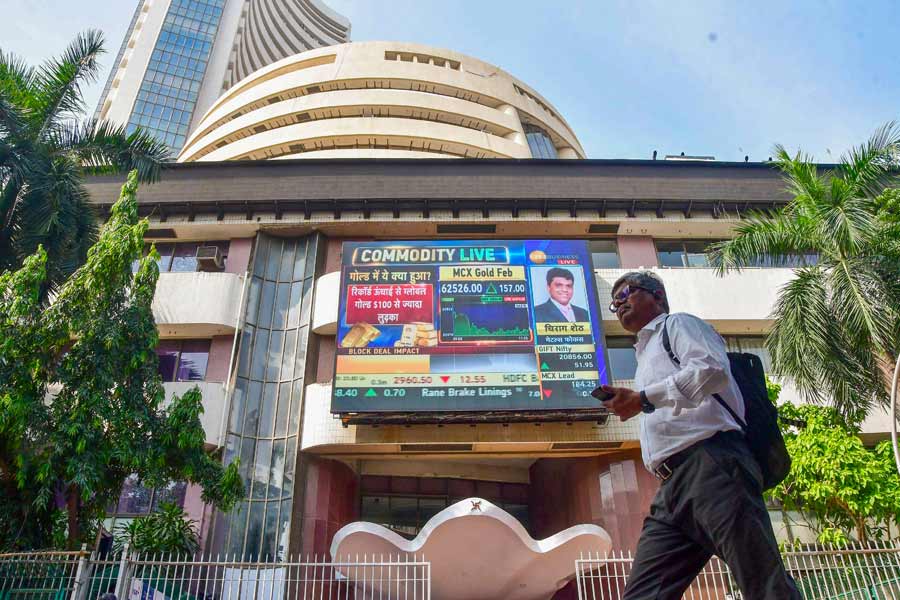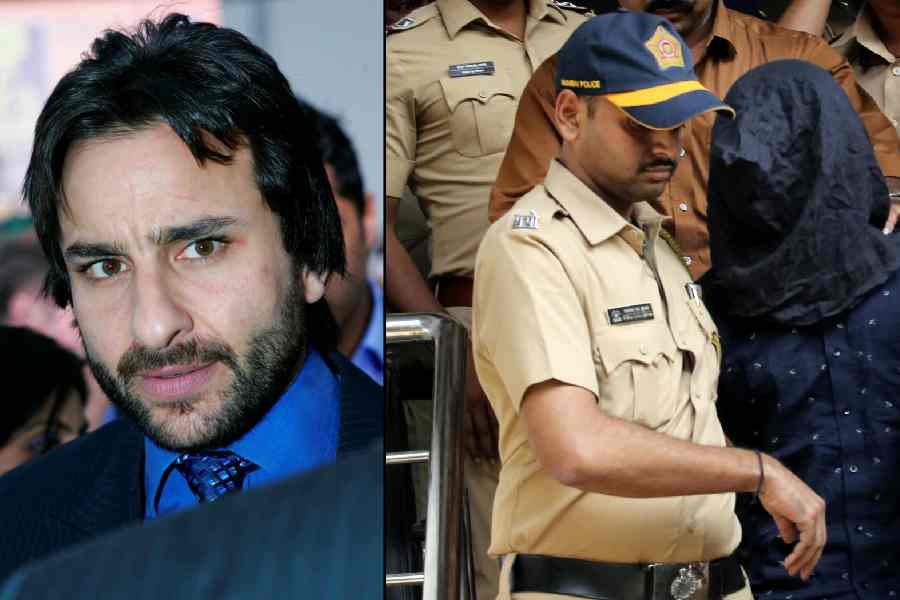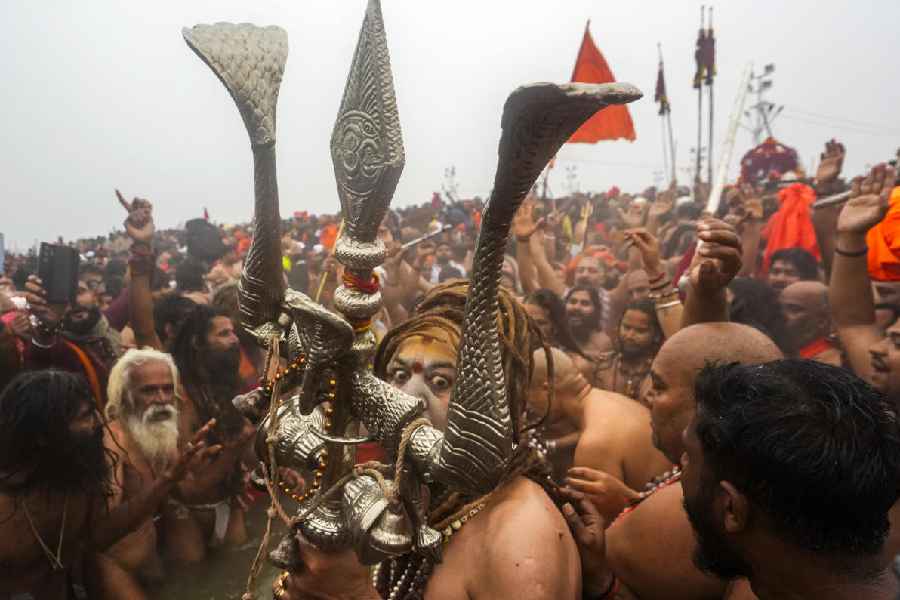Anti-CAA protesters holding up copies of the Constitution faced arrest. A BJP veteran petitioned the Supreme Court to mend the Preamble by excising the terms “secular” and “socialist”. A senior BJP leader seemed to mock Rahul Gandhi’s red-bound copy of the Constitution by equating it with Mao’s Red Book.
Prime Minister Narendra Modi on Sunday betrayed no hint of irony as he hailed the Constitution as “our guiding light” and encouraged citizens to read its Preamble and share videos on Republic Day next month to mark 75 years of the Constitution coming into effect.
Modi’s extolling of the Constitution came against the backdrop of an Opposition onslaught against home minister Amit Shah for “insulting” Bhimrao Ambedkar, the architect of the Constitution and a revered Dalit figure.
To the BJP, the issue is laden with electoral risk, as proved by the setbacks suffered in the general election following an Opposition campaign that the ruling party wanted to change the Constitution and abolishreservations.
“The Constitution is our guiding light, our guide. It is on account of the Constitution of India that I am here today, being able to talk to you,” Modi said in his monthly radio address, Mann Ki Baat.
“A special website named ‘constitution75.com’ has also been created to connect the citizens of the country with the legacy of the Constitution. In this, you can read the Preamble to the Constitution and upload your video.”
During the 2019-20 movement against the Citizenship (Amendment) Act, which left Muslims out of a fast-tracked citizenship process for persecuted minorities from some neighbouring countries, demonstrators had read out from the Preamble to the Constitution, which promises equality to all. They were put down with an iron hand.
Aazad Samaj Party chief Chandrasekhar Azad, now a Lok Sabha MP, had been arrested from an anti-CAA protest in Delhi as he waved a copy of the Constitution and read out fromits Preamble.
A court later granted him bail while observing that reading out from the Preamble cannot prima facie be taken as incitement to violence, a charge the police had levelled.
During the recent Maharashtra poll campaign, BJP leader Devendra Fadnavis had accused Rahul Gandhi of seeking the support of “urban Naxals” by displaying his “red book” — virtually equating the Congress MP’s red-bound copy of the Constitution with Mao Zedong’s Red Book.
Fadnavis is now chief minister, a post he was able to wrest from ally Eknath Shinde because the central BJP leadership stood solidly behind him.
Last month, the Supreme Court dismissed a batch petitions — including one from former BJP minister and ex-MP Subramanian Swamy — seeking to have the words “secular” and “socialist” deleted from the Preamble. Secularism is “intricately woven” into the basic feature of the Constitution, the apex court said.
Yet, just weeks later, during the debate on the Constitution in Parliament this month, several BJP members attacked the Congress for having inserted “secular” and “socialist” into the Preamble through the 42nd amendment in 1976.
“Ambedkar said there was no need to include ‘secular’ as the entire Constitution embodied the concept of a secular State…,” BJP president and health minister J.P. Nadda said in the Rajya Sabha.
“On the inclusion of the term ‘socialist’, he had said it is against the very grain of democracy to decide what kind of society people of India should live in.”
It was during this debate that Shah made certain remarks that the Opposition seized on to accuse him of having “insulted” Ambedkar.
“It has become a fashion to say, ‘Ambedkar, Ambedkar, Ambedkar, Ambedkar, Ambedkar, Ambedkar’. If they (Congress leaders) took God’s name so many times, they would have got a place in heaven...” Shah had said in the Rajya Sabha.
The Opposition has since been demanding Shah’s resignation and an apology. The seriousness of the matter forced Modi himself to jump to his second-in-command’s defence. With the controversy still escalating, the BJP held a meeting of its allies to exhort them to unitedly counter the Opposition.
After the Constitution, the other focus of Modi’s radio address was the upcoming Maha Kumbh in Prayagraj (formerly Allahabad) from January 13. The Prime Minister sought to portray the Hindu religious event as an example of “diversity” and “unity”.
“The speciality of the Kumbh is also in its diversity. Crores of people congregate…. There is no discrimination anywhere; no one is big and no one is small. Such a scene of unity in diversity will not be seen anywhere else in the world,” Modi said.
He chanted a slogan: “Mahakumbh ka sandesh, ek ho poora desh (The message of the Mahakumbh is, let the whole country unite).”
During the Maharashtra election campaign, Modi had mouthed another unity slogan — “Ek hain toh safe hain (United, we are safe)” — but it was widely construed as a call for unity solely among Hindus.











